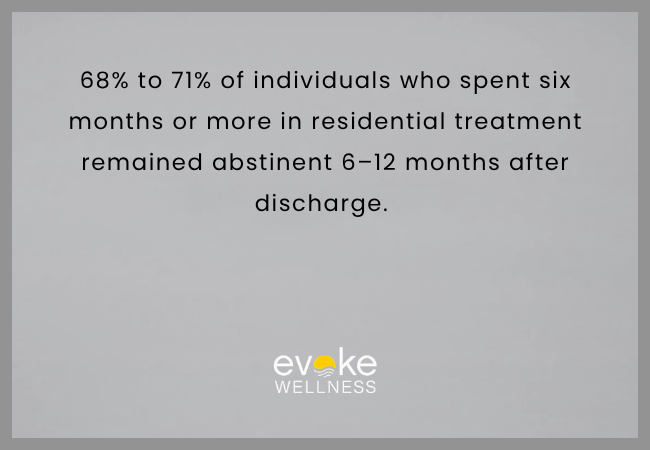Long-term sobriety isn’t something that happens by accident. It’s the result of sustained, intentional effort supported by the right environment, tools, and professional care. For many individuals battling addiction, stability is the missing link—the crucial factor that allows everything else to take root. That’s where residential rehab comes in. It’s more than just a place to detox; it’s a structured, immersive environment where real transformation begins.
When someone is struggling with substance use, the instability of daily life—chaotic relationships, unsafe environments, mental health challenges—can make recovery feel impossible. Even highly motivated individuals can find themselves pulled back into addiction when they’re not surrounded by consistent support. A residential program offers something different: a full reset, grounded in stability, structure, and safety. Let’s explore why this type of care is so effective in promoting long-term recovery.
The Importance of Stepping Away from Chaos
Recovery often requires physical and psychological distance from the environment that fueled the addiction in the first place. Living in a situation where drugs or alcohol are accessible—or where stress, trauma, or unhealthy relationships are present—makes relapse far more likely. Residential rehab provides a vital separation from those triggers.
By moving into a controlled setting, individuals gain the opportunity to hit pause on the chaos and focus entirely on healing. Without the constant distractions of daily responsibilities, they can immerse themselves in therapy, education, and reflection. The day-to-day structure of residential care creates a rhythm that helps restore balance and trust—both with oneself and with others.
At a Residential Treatment Center in Ohio, clients are surrounded by professionals who understand addiction and recovery. The 24/7 support system ensures that every crisis, craving, or emotional breakdown can be addressed in real time. This stability is often the foundation upon which people rebuild their lives.
Healing the Mind and Body Together
Addiction isn’t just about substances. It deeply affects the brain, body, and behavior. Long-term recovery demands an integrated approach that addresses both physical health and psychological well-being. In a residential program, clients receive comprehensive care that includes medical supervision, therapy, nutrition, and daily routines designed to promote healing on every level.
The initial stage often begins with detox, especially for those dealing with severe substance use disorders. Withdrawal can be dangerous without medical support. Entering a Drug Detox Center in Ohio ensures that clients can go through this critical phase safely, with medications and monitoring to ease symptoms and prevent complications.
But detox is only the beginning. Once the substances are out of the system, the real work begins. Individual therapy, group therapy, and behavioral interventions help clients understand the root causes of their addiction. Often, unresolved trauma, anxiety, depression, or other mental health conditions lie beneath the surface. Residential treatment provides the intensive care needed to uncover and treat these issues in tandem with the substance use.
Consistent Routine and Structure as a Source of Strength
For someone in early recovery, unpredictability can be dangerous. The ups and downs of everyday life can lead to emotional instability and poor decision-making. One of the major benefits of residential rehab is its consistency. Each day follows a predictable schedule: therapy sessions, wellness activities, educational groups, and designated times for meals and rest.
This structure might seem rigid at first, especially to those used to chaotic lifestyles. But over time, it becomes a source of strength. Clients begin to understand the value of discipline, accountability, and healthy routines. They learn to set goals, track progress, and follow through. These are critical skills for long-term sobriety, and they’re much easier to develop in a stable, supportive environment.
The Intensive Inpatient Treatment Program in Ohio offered at Evoke Wellness is specifically designed to provide this level of structure. With individualized treatment plans, around-the-clock care, and a carefully curated therapeutic schedule, clients receive the intensive support they need to build new habits and strengthen their recovery foundation.
Addressing Mental Health and Dual Diagnosis
Many individuals who seek treatment for addiction are also dealing with mental health disorders. Depression, anxiety, PTSD, bipolar disorder, and other conditions frequently co-occur with substance use. In these cases, treating the addiction alone is not enough. If the underlying mental health issues remain unaddressed, the likelihood of relapse skyrockets.
That’s why dual diagnosis treatment is such a vital component of residential rehab. It ensures that both the addiction and the mental health condition are treated at the same time, by a coordinated team of professionals. Medication management, therapy, and psychiatric support are integrated into the recovery plan.
A Dual Diagnosis Treatment Program in Ohio offers this comprehensive approach. Clients benefit from therapists, physicians, and addiction counselors working together to uncover the connections between mental health and substance use. Through this collaboration, people gain insight into their behavior and develop strategies to manage both conditions for the long haul.
The Power of Community and Peer Support
Isolation is one of the most painful aspects of addiction, and it’s also one of the most dangerous. Residential rehab provides an antidote to that loneliness through community. Living alongside others who are also in recovery helps break the cycle of shame and secrecy that often keeps people stuck.
Group therapy, shared meals, and peer support sessions allow clients to build trust, share stories, and find encouragement in others’ progress. These relationships foster accountability and create a sense of belonging. Knowing you’re not alone—and that others truly understand what you’re going through—can be a powerful motivator.
This communal aspect of treatment is especially important during setbacks or difficult emotional moments. In a supportive residential setting, there’s always someone to talk to, whether it’s a peer or a staff member. That sense of connection can be the difference between pushing through a craving and giving in to it.
Alcohol and Drug-Specific Treatment Approaches
No two addictions are exactly alike, and effective treatment must reflect that. Whether someone is struggling with opioids, stimulants, alcohol, or a combination of substances, the recovery process will vary. That’s why residential programs offer tailored approaches based on substance type, severity, and personal history.
Someone entering an Alcohol Addiction Treatment Program in Ohio, for example, may require medication-assisted treatment (MAT) to manage cravings and reduce the risk of relapse. Others might benefit more from trauma-focused therapy, motivational interviewing, or family counseling.
By living in the facility full-time, clinicians can closely monitor each client’s progress and make real-time adjustments to the treatment plan. This kind of personalized care is harder to achieve in outpatient settings. The residential model creates the space for ongoing evaluation and deeper therapeutic engagement.

Physical Health, Nutrition, and Wellness
Substance use takes a toll on the body, often leaving clients malnourished, sleep-deprived, and physically depleted. Residential rehab programs incorporate wellness practices to help restore physical vitality. Nutritious meals, regular exercise, and sleep hygiene become part of the daily routine.
These habits contribute not only to physical recovery but to emotional and cognitive well-being. When the body begins to heal, energy levels improve, mental clarity increases, and people feel more capable of managing their recovery. Many facilities also offer yoga, meditation, art therapy, and mindfulness practices that support holistic healing.
As part of its commitment to overall wellness, Evoke Wellness Ohio has earned a reputation as a trusted Mental Health Treatment Center in Ohio, with programs that address the mind-body connection and promote sustainable, healthy living.
Transition Planning and Continued Support
Recovery doesn’t end when a residential program does. One of the reasons residential rehab is so effective is because it includes detailed discharge planning and connections to ongoing care. As the end of a client’s stay approaches, clinicians begin preparing for the transition back into daily life.
This process might include referrals to outpatient therapy, sober living homes, support groups, or alumni programs. A strong aftercare plan reduces the risk of relapse and helps maintain the gains made during treatment.
The best residential programs don’t just focus on short-term abstinence; they’re invested in long-term recovery. That means equipping clients with coping tools, relapse prevention strategies, and a solid support network before they leave the facility.
Why Choose Evoke Wellness Ohio?
Choosing the right treatment center can be overwhelming, but stability, compassion, and clinical excellence make all the difference. At Evoke Wellness Ohio, we provide a structured, supportive environment where healing can truly begin. Our dedicated team of therapists, medical professionals, and support staff work closely with each client to develop a plan that addresses their unique needs. Whether you’re seeking dual diagnosis treatment, substance-specific care, or long-term support, we are here to walk with you every step of the way.
As a leading Addiction Treatment Center Southwest Florida, we are committed to empowering our clients through evidence-based care and individualized attention. We believe in your potential for recovery—and we have the tools and experience to help you get there.
Conclusion
Long-term sobriety is built on a strong foundation. Residential rehab offers the consistency, care, and community needed to create lasting change. It removes the distractions and dangers of everyday life and replaces them with a healing environment that supports growth from the inside out. Whether you’re just starting your recovery journey or returning after a relapse, a residential program can provide the stability you need to move forward with confidence.
If you or someone you love is ready to take that next step, don’t wait. Reach out to Evoke Wellness Ohio today and discover the transformative power of residential treatment. Our compassionate team is standing by to help you reclaim your life—one day at a time. Call us now at 866-430-9267 to learn more about our programs or to schedule a confidential assessment.
Frequently Asked Questions (FAQs)
What is residential rehab and how does it help with addiction recovery?
Residential rehab is a structured, live-in treatment program where individuals stay at a facility full-time while receiving therapy, medical care, and support. It removes outside distractions and provides a stable environment for intensive healing.
How long do people usually stay in a residential rehab program?
The length of stay varies based on individual needs, but most residential rehab programs last between 30 to 90 days. Some people may benefit from extended stays for deeper recovery.
Can residential rehab treat both addiction and mental health issues?
Yes. Many residential programs, including dual diagnosis treatment centers, are equipped to treat co-occurring mental health disorders alongside substance use issues.
Is medical detox included in residential treatment?
Some residential rehab centers include on-site detox services, while others refer to affiliated detox facilities. Medical detox is often the first step before beginning therapy and structured care.
What kind of therapies are offered in residential rehab?
Residential programs typically include individual therapy, group therapy, cognitive-behavioral therapy (CBT), family counseling, relapse prevention, and holistic therapies like yoga or mindfulness.
Will I have support after I leave residential rehab?
Yes. Quality residential programs provide aftercare planning, including referrals to outpatient therapy, sober living homes, alumni groups, and continued support systems.



